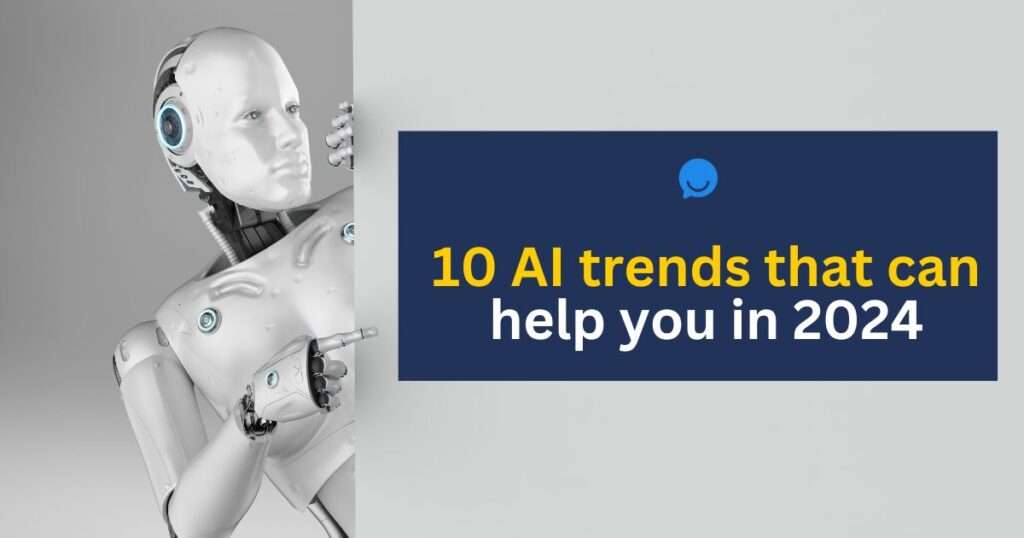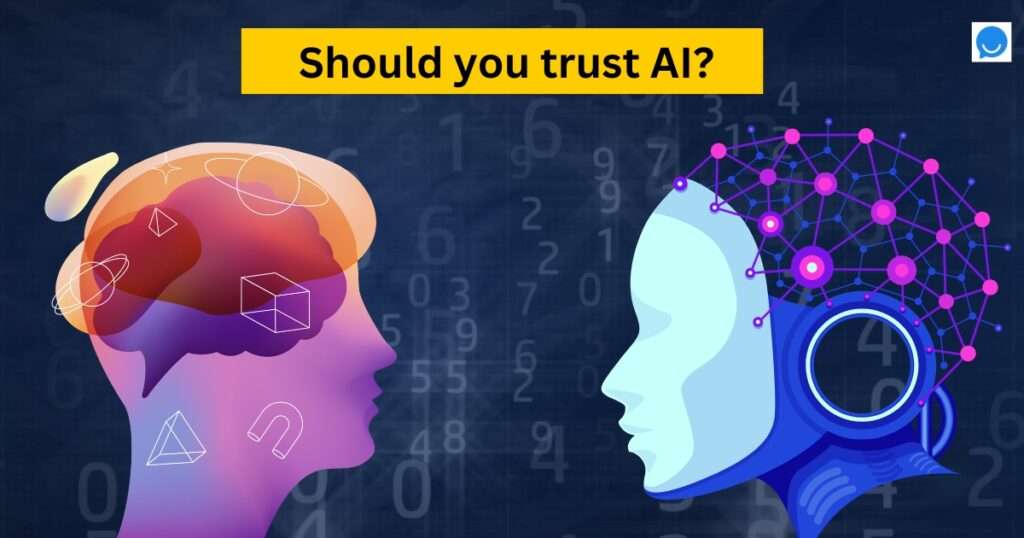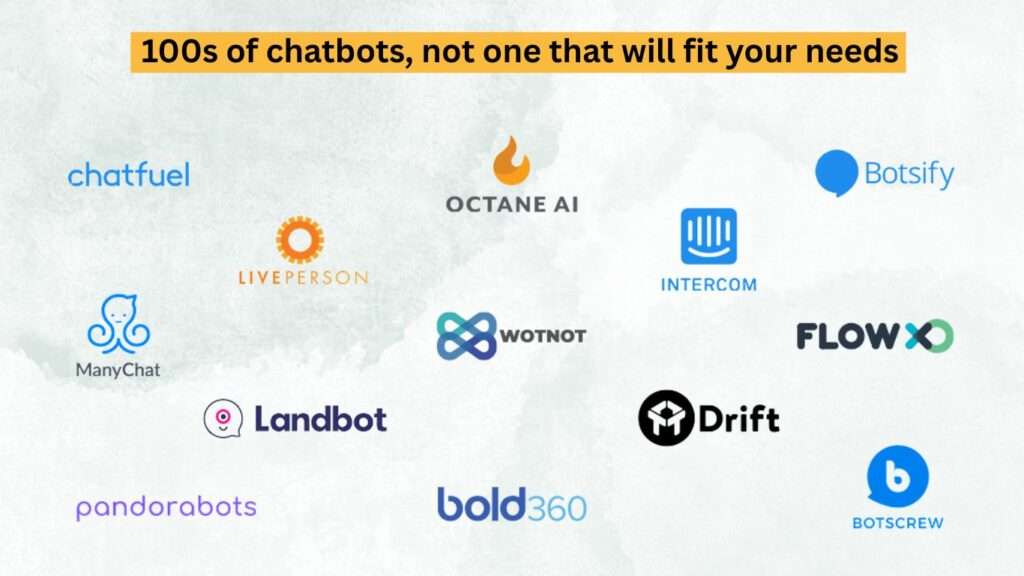Everyone around me is talking about AI, but what are some AI trends that I shouldn’t miss?
From a business perspective, there’s a mix of curiosity, high expectations, and reservations when it comes to AI. Companies are eager to explore how AI can revolutionize their operations, boost efficiency, and drive innovation. At the same time, they have concerns about the ethical implications of AI, its potential to replace human workers, and the risks associated with relying too heavily on AI technologies.
Despite these reservations, recent advancements in AI technology have been remarkable. AI is now capable of performing tasks that were once thought to be exclusively within the realm of human intelligence. From predictive analytics to natural language processing, AI algorithms are becoming increasingly sophisticated, leading to exciting developments in fields such as healthcare, finance, and manufacturing.
As AI continues to evolve, it’s essential for businesses to stay informed about the latest advancements and consider how they can leverage AI to gain a competitive edge while also addressing ethical and societal concerns. By striking the right balance between innovation and responsibility, companies can harness the full potential of AI while ensuring that its benefits are shared equitably and responsibly.

Overview of Key AI Trends
Sure, let’s take a look at some of the hottest AI trends that are shaping the technological landscape today:
- Generative AI: Imagine a technology that can create art, music, and even videos on its own. That’s exactly what generative AI does. It’s like having a digital Picasso or Beethoven at your fingertips, generating content that’s not just impressive but also tailored to your preferences.
- Multimodal AI: This trend is all about making AI smarter by teaching it to understand different types of data, like text, images, and audio, all at once. It’s like giving AI superpowers, enabling it to interact with us in more natural and intuitive ways.
- AI-driven cybersecurity: With cyber threats becoming more sophisticated by the day, AI is stepping up to the plate to defend our digital fortresses. From predicting and detecting threats to responding in real-time, AI-powered cybersecurity is like having a digital guardian watching over our online lives.
- Embedded AI and UX-focused AI: Think of this trend as AI seamlessly woven into the fabric of our everyday experiences, making things smoother, faster, and more user-friendly. From predictive text to personalized recommendations, embedded AI is all about enhancing our interactions with technology.
- AI democratization: AI used to be the exclusive playground of big tech companies, but not anymore. Thanks to democratization, even small businesses and startups can leverage powerful AI tools to drive innovation and growth.
- Computer vision and hyperautomation in manufacturing: Picture a world where robots work side by side with humans, revolutionizing the way things are made. That’s the promise of computer vision and hyperautomation in manufacturing, where AI-powered machines are reshaping the factory floor.
- Shadow AI: While AI holds immense promise, there’s also a darker side to it. Shadow AI refers to the unauthorized use of AI technologies within organizations, leading to potential security risks and data breaches. It’s like having a rogue AI running amok behind the scenes.
- Open source’s role in AI: Open source AI is like the Robin Hood of the tech world, democratizing access to powerful AI tools and accelerating innovation. From cutting-edge research to practical applications, open source AI is driving the future of artificial intelligence.
- Compliance and ethics in AI: As AI becomes more pervasive, so do concerns about its ethical implications. From data privacy to algorithmic bias, businesses are under increasing pressure to ensure that their AI systems are not just effective but also ethical and responsible.
- Evolution of language models: Language models are like the building blocks of AI, enabling machines to understand and generate human language. As these models evolve, they’re becoming smaller, faster, and more powerful, opening up new possibilities for AI-powered applications across industries.
Overall, these AI trends are not just shaping the future of technology but also our everyday lives, from how we work and play to how we stay safe and secure online. It’s an exciting time to be at the forefront of AI innovation, and the possibilities are truly limitless!
What’s the future of AI?
Looking ahead to the future of AI feels like peering into a crystal ball of endless possibilities. It’s like imagining a world where machines aren’t just smart but genius, where robots work alongside us like trusted colleagues, and where problems once deemed unsolvable suddenly have solutions. The road ahead is paved with innovation and excitement, as AI continues to evolve and expand its reach into every corner of our lives. So, let’s take a journey into the future and explore the emerging trends that are set to shape the world of AI in the years to come.
- Quantum AI: Imagine a world where AI isn’t just smart but supercharged with the power of quantum computing. Quantum AI represents the fusion of two cutting-edge technologies, promising unparalleled computational power and problem-solving capabilities. With quantum AI, tasks that once took years or even centuries to complete could be solved in a fraction of the time. From complex simulations in drug discovery to financial modeling and cryptography, the potential applications of quantum AI are virtually limitless.
- AI in Creative Industries: The world of creativity is undergoing a digital revolution, thanks to advancements in AI. From scriptwriting and special effects to post-production processes, AI is playing an increasingly integral role in film production. Tools like OpenAI’s Sora are pushing the boundaries of what’s possible, allowing for the generation of high-quality video content with unprecedented ease and speed. These advancements are not just disrupting traditional creative processes but also democratizing access to the world of filmmaking, empowering aspiring filmmakers and artists to bring their visions to life.
- Healthcare and Personalized Medicine: AI’s impact on healthcare is set to be transformative. With its ability to analyze vast amounts of medical data and identify patterns that humans might miss, AI is revolutionizing diagnostics, medical imaging, and treatment planning. Imagine a future where diseases are detected earlier, treatments are tailored to individual patients, and healthcare delivery is more efficient and effective than ever before. AI-powered technologies like Beyondchats fertibot are already making strides in this direction, paving the way for a new era of personalized medicine.
- Robotics: The rise of AI-driven robotics promises to usher in a new era of automation and autonomy. From manufacturing and logistics to healthcare and hospitality, robots equipped with advanced AI algorithms are set to revolutionize industries across the board. These robots will be not just intelligent but versatile, capable of learning and adapting to a variety of tasks and environments. As a result, we can expect to see increased efficiency, productivity, and safety in workplaces where robots and humans collaborate side by side.
- AI in Addressing Global Challenges: As the world grapples with urgent issues like climate change and resource scarcity, AI is emerging as a powerful tool for finding solutions. From optimizing energy usage to monitoring environmental changes and predicting natural disasters, AI-powered technologies are helping us better understand and address the complex challenges facing our planet. With AI’s help, we can develop more sustainable practices, mitigate the impacts of climate change, and build a better future for generations to come.
In summary, the future of AI holds immense promise, from revolutionizing industries to addressing global challenges. By harnessing the power of emerging technologies like quantum computing and AI, we can unlock new frontiers of innovation and create a better, more sustainable world for all.





